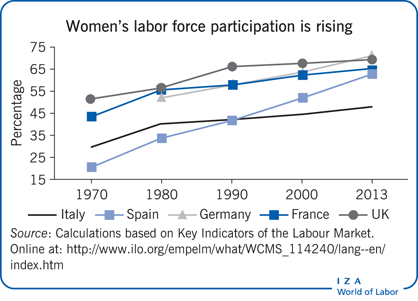Elevator pitch
The economic and psychological literatures have demonstrated that early investments (private and public) in children can significantly increase cognitive outcomes in the short and long term and contribute to success later in life. One of the most important of these inputs is maternal time. Women’s participation in the labor market has risen rapidly in most countries, implying that mothers spend less time with their children and that families rely more on external sources of childcare. This trend has raised concerns, and an intense debate in several countries has focused on the effectiveness of childcare policies.

Key findings
Pros
Mothers’ (and fathers’) time is a crucial input in child development, especially when parents are highly educated.
Making high-quality early childcare more available to low-income households can promote efficiency and reduce inequality.
Parental leave and other policies that enable parents to spend more time with their children can improve children’s abilities.
Compared with informal childcare, formal childcare may improve child outcomes, such as school readiness and problem-solving, especially for low-income children.
Childcare programs directed to children in low-income families can affect child outcomes in the short and long term.
Cons
Expansion of parental leave may not significantly affect some child outcomes in the long term (average years of schooling and wages).
Compared with care by parents, some evidence suggests that formal childcare may negatively affect children’s vocabulary and behavioral and social skills, increasing anxiety and aggressive behavior.
Few studies have used direct measures of parents’ time with their children to examine the relationship between parental investments and children’s cognitive development.
Children receiving informal care from grandparents were less prepared for school than children in formal childcare.